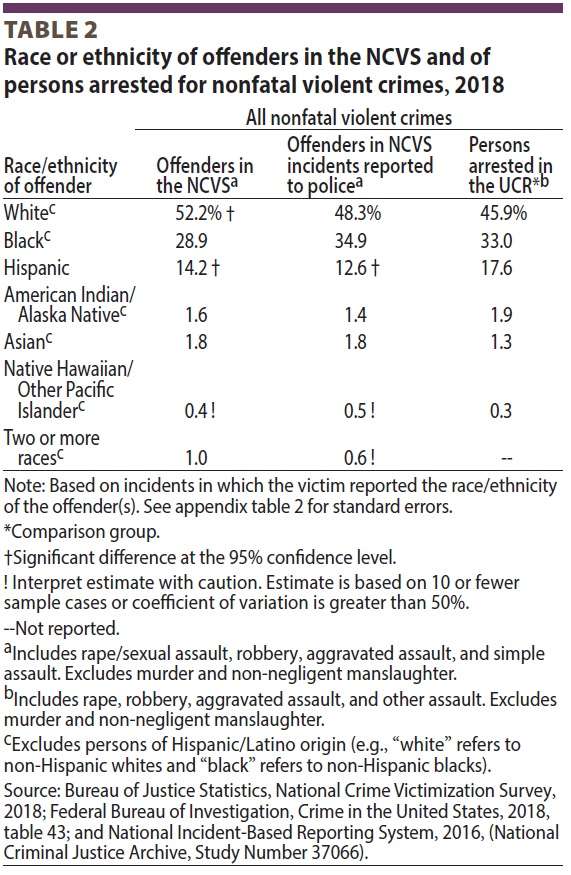The Volokh Conspiracy
Mostly law professors | Sometimes contrarian | Often libertarian | Always independent
Jurors Who "Believe That Some Races … Tend to Be More Violent Than Others,"
interpreting "tend to" as reflecting the "statistics" about racial disparities in committing violent crimes.
Today's dissent from denial of certiorari in Love v. Texas (written by Justice Sotomayor and joined by Justices Breyer and Kagan) argues that Texas courts hadn't properly considered claims of racial bias based on a juror's answering "yes" to a voir dire question, "Do you believe that some races and/or ethnic groups tend to be more violent than others?"
In 2018, a jury convicted Love of capital murder in the course of a robbery that occurred in 2015. Prior to trial, prospective members of the jury filled out a questionnaire that included the following questions:
"68. Do you sometimes personally harbor bias against members of certain races or ethnic groups?
"69. Do you believe that some races and/or ethnic groups tend to be more violent than others?"
To the first question, No. 68, the prospective juror at issue answered, "No." But to the second question, No. 69, he answered, "Yes." He explained that "[s]tatistics show more violent crimes are committed by certain races. I believe in statistics."
During the voir dire proceeding that followed, both Love and the State questioned the prospective juror about his response to question No. 69. He explained that he understood "[n]on-white" races to be the "more violent races." He claimed that he had seen statistics to this effect in "[n]ews reports and criminology classes" he had taken.
He stated that his answer to question No. 69 was based on these statistics, rather than his "personal feelings towards one race or another," and he indicated that he did not "think because of somebody's race they're more likely to commit a crime than somebody of a different race." He told defense counsel that he would not feel differently about Love "because he's an African American."
I appreciate the dissent's arguments that Texas courts hadn't considered this enough, and that the Texas courts were mistaken in their harmless error analysis, which focused on the availability of peremptory challenges earlier in the process (the challenges were apparently used up by the time the juror was being questioned). The Texas courts apparently never reached the merits of the argument that the juror was biased and therefore should have been excluded for cause.
But, shifting away from the specific procedural pointer the dissent was stressing, I don't think that, on the merits, the juror should have been excluded here, at least absent further evidence of bias that wasn't mentioned in the opinion. While "tend to" in the question is ambiguous, I take it many reasonable jurors can interpret it as simply reflecting statistical correlation related to the per capita offense rate, and in particular statistical correlation within the U.S., which is how the juror said he was reading it; recall that the juror was a layman reading a question given to him on the questionnaire, rather than formulating it as his own statement. (If you saw this question on a juror questionnaire today, would you think the court is using "tend to" to refer to some hypothetical biological connection, or just to a statistical correlation?)
And under that interpretation, the answer of many fair-minded people who have seen the statistics would be "yes," even recognizing the limitations of the statistics (see here for more on the statistics and the limitations). As best I can tell, one can't say this accurately about "non-white" races generally, whether or not that includes Hispanics, who are often treated as a racial group in lay discussions, so the juror likely erred on that score. But it does appear to be true about blacks in the U.S., e.g. (focus here on the first column, since that's less skewed by differences in rates of reporting to the police):
(Recall that the U.S. population is 60.1% non-Hispanic white, 18.5% Hispanic, 13.4% black, and 5.9% Asian [2020 data].) The juror thus might have been giving an honest answer about his eminently plausible belief, based on real evidence gathered and distributed by generally trusted government agencies.
To offer an obviously imperfect analogy, I take it that sex bias by jurors is also impermissible; but if people were asked, "Do you believe that people of one sex tend to be more violent than other people?," I assume many fair-minded jurors would feel obliged to say "yes." The sex-based differences in violent offense rates are of course much starker than the race-based differences, and one could argue that sex isn't identical to race for such purposes (though it's very close for many purposes, cf. J.E.B. v. T.B. (1994), in a slightly different juror context), for instance because it's likely that there is some biological connection between sex and violence. Still, I think this helps show the peril of removing jurors for cause based on their accurate beliefs about the criminological data.
I wonder also whether it shows the peril of including such a question on the questionnaire in the first place (or at least in wording the question the way it was worded). On one hand, a "yes" answer might lead to useful further questioning about whether the juror can decide the case based on the evidence about this defendant, and not about statistical generalizations about racial groups.
On the other hand, it may also lead more jurors to actually be influenced by such statistical generalizations (because the question will remind them of things they've heard along these lines, whether or not they then candidly answer "yes"). And given that many fair-minded jurors would, if honest, answer the question "yes," simply because the statistics do suggest such an answer, it may tend to identify not prejudiced jurors but honest jurors.
In any event, I'd love to hear what others, especially experienced criminal defense lawyers, have to say about this.



Show Comments (110)